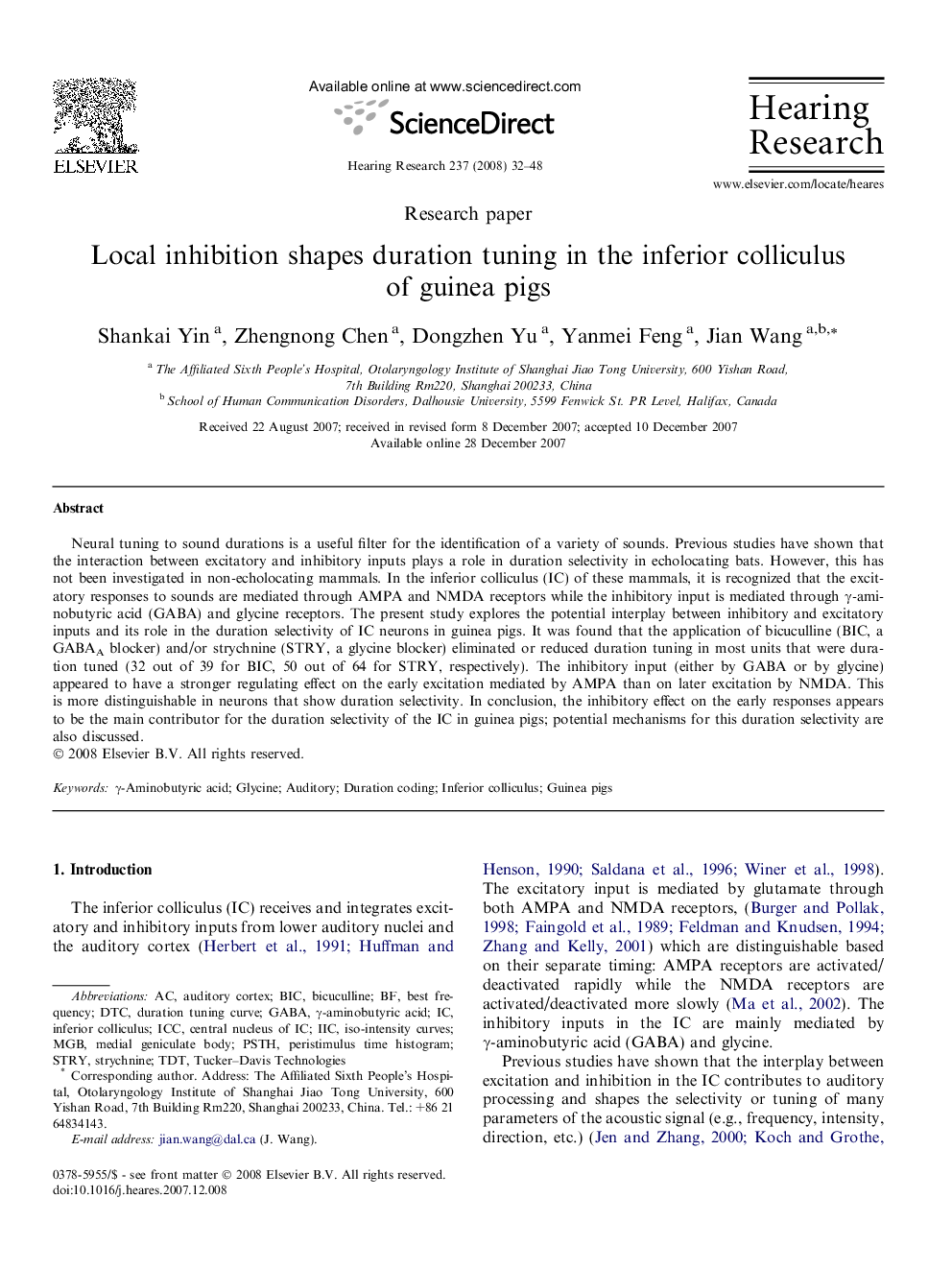| Article ID | Journal | Published Year | Pages | File Type |
|---|---|---|---|---|
| 4356119 | Hearing Research | 2008 | 17 Pages |
Neural tuning to sound durations is a useful filter for the identification of a variety of sounds. Previous studies have shown that the interaction between excitatory and inhibitory inputs plays a role in duration selectivity in echolocating bats. However, this has not been investigated in non-echolocating mammals. In the inferior colliculus (IC) of these mammals, it is recognized that the excitatory responses to sounds are mediated through AMPA and NMDA receptors while the inhibitory input is mediated through γ-aminobutyric acid (GABA) and glycine receptors. The present study explores the potential interplay between inhibitory and excitatory inputs and its role in the duration selectivity of IC neurons in guinea pigs. It was found that the application of bicuculline (BIC, a GABAA blocker) and/or strychnine (STRY, a glycine blocker) eliminated or reduced duration tuning in most units that were duration tuned (32 out of 39 for BIC, 50 out of 64 for STRY, respectively). The inhibitory input (either by GABA or by glycine) appeared to have a stronger regulating effect on the early excitation mediated by AMPA than on later excitation by NMDA. This is more distinguishable in neurons that show duration selectivity. In conclusion, the inhibitory effect on the early responses appears to be the main contributor for the duration selectivity of the IC in guinea pigs; potential mechanisms for this duration selectivity are also discussed.
